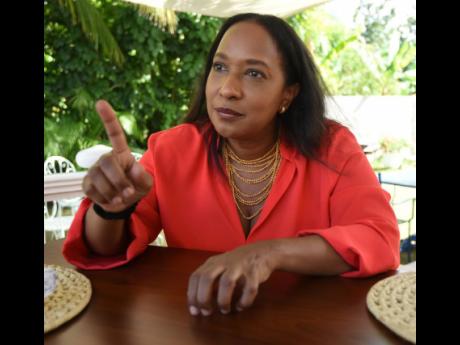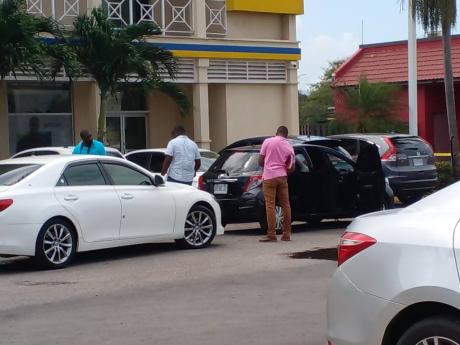Crime fear stunting the island’s growth
Ja-born trade guru confident investments would flow if island arrests problem
Many Jamaicans who left their homeland in pursuit of better fortunes overseas have abandoned plans to return to the island as a result of its high murder rate.
One diplomat serving on the world stage said Jamaica will continue to lose many of its brightest and best because crime was preventing them from serving to their full potential, while it will also lose the experience gained by others who have opted to abandon their dream of returning home.
The current crime situation, according to International Trade Centre boss Pamela Coke-Hamilton, is a lose-lose for the country if significant efforts are not made to rein in the scourge that has left many ashamed, pained and scared.
“I have never felt that our crime [problem] is beyond anybody else's. We just have not been able to manage it. We are not worse than, I would say, 60 per cent of the world, and we know what's causing it. I think it is the single biggest economic challenge we have. If we solve crime, the investment that would flow into this country would bar none,” said Coke-Hamilton, during a recent interview with The Sunday Gleaner as she toured farms in sections of St Catherine.
According to her, it is painful to meet investors seeking a workforce who say “we would go to Jamaica, but ...”.
“If we can resolve that, I fundamentally believe our economic growth would dramatically shift, a lot of which is linked to the issue of security costs. Our work ethic is unparalleled; our creativity, innovativeness. When I come to Jamaica and ask about certain things, I am told, 'Yeah, man. It can be done'. I have never given a task and I am told it can't be done,” shared Coke-Hamilton, who is also an attorney-at-law and has served Jamaica and the Caribbean for years in foreign service, in trade and trade negotiations.
The fear of crime and its impact on families have made remaining overseas a difficult and painful choice for many.
“Everybody who has ever served here as a diplomat loves it. They would come back tomorrow. But why do you think so many of us are away? It's not because of economics. It is the fear that you don't want to raise your children in a scenario where you never know. That's what drives a lot of people away. It's not that they love the snow,” she noted.
“It is that single factor. And if we can address that, it will dramatically shift, not just Jamaica's internal trajectory, but how we are seen externally for investment and other purposes.”
THE GUN TRADE
Coke-Hamilton is a high-level professional in the diaspora, on whose back the economy has been kept afloat through remittance for years.
However, sections of the diaspora have also been linked to crime, remitting illegal high-powered weapons to gangs and affiliates in Jamaica.
Police have been stumped by some of the weapons found in Jamaica, which include heavy artillery assault rifles and powerful handguns. Many have been traced to the Unites States, which reportedly find their way to Jamaica through official and unofficial ports of entry with the assistance of corrupt officials, according to local police personnel.
Illegal guns have also entered the island through various unsecured coves, while “there are exchanges on the high seas involving some fisherfolk”, according to well-placed local and United States Drug Enforcement Administration (DEA) sources.
“The exponential increase in gun violence in the parish of Westmoreland is as a direct result of the importation of guns which are coming in through the seaside village of Little Bay in the parish,” a source told The Sunday Gleaner, adding that the gun flow is being largely funded through the proceeds of lottery scamming operations.
Since the start of the year, the security forces have recovered nearly 100 assorted weapons, and hundreds of rounds of ammunition in targeted operations in the capital city and sections of rural Jamaica. In January, one operation over several days in the National Stadium complex yielded at least eight guns. The find included an AK-47 and an Uzi submachine.
More than 1,400 persons were murdered in 2021, as the country went into a free-fall blood flow. The Government's high reliance on states of emergency to deal with the crime wave was halted after it did not receive support from the Opposition.
The Government recently launched the 'Get Every Illegal Gun' campaign, paying between $250,000 and $500,000 for the recovery of illegal weapons.
An updated firearms bill has also been tabled, proposing a mandatory minimum imprisonment of 15 years for illegal possession.


